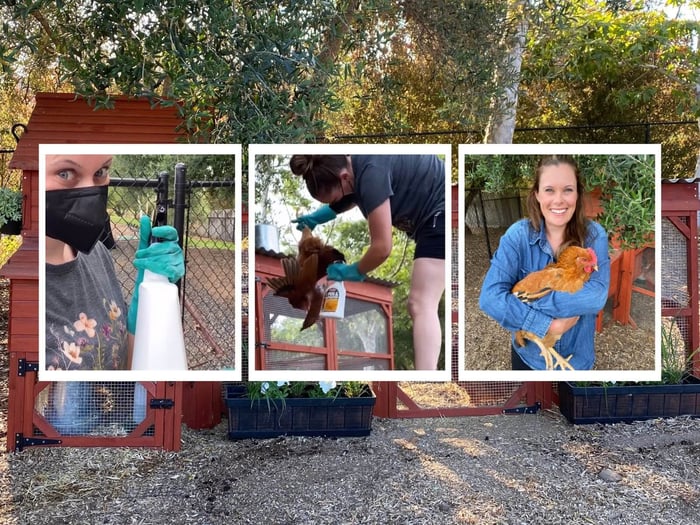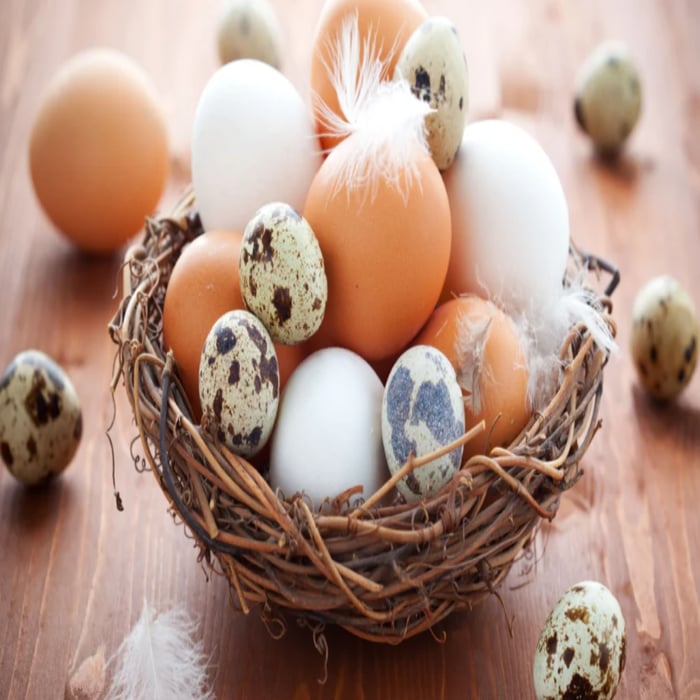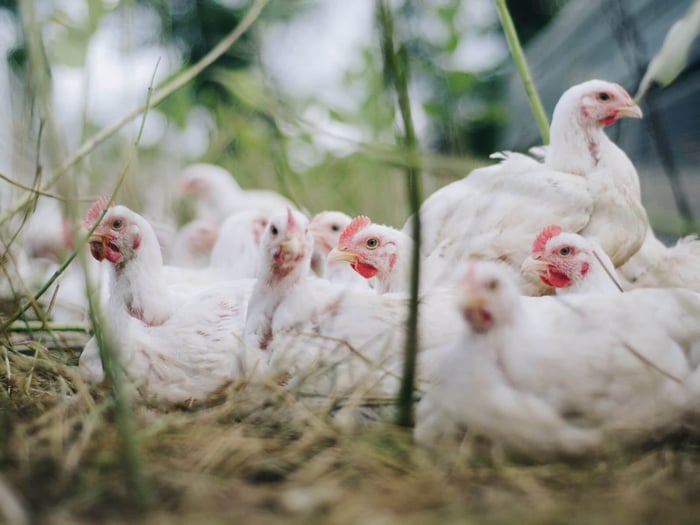Table of Contents
What Can Chickens Eat? A Guide to Food Scraps for Your Flock
One of the joys of keeping chickens is watching them scratch and peck their way through tasty treats from your kitchen. Chickens are natural foragers, and their willingness to eat a wide range of food makes them excellent recyclers of household scraps. Still, every chicken keeper eventually asks the same question: what can chickens eat, and what should be kept off the menu?
This guide dives deep into safe and unsafe food scraps for your flock. We’ll explore the best fruits, vegetables, and proteins to share, which foods to avoid, and why chickens are sometimes smarter than we give them credit for when it comes to mealtime decisions.
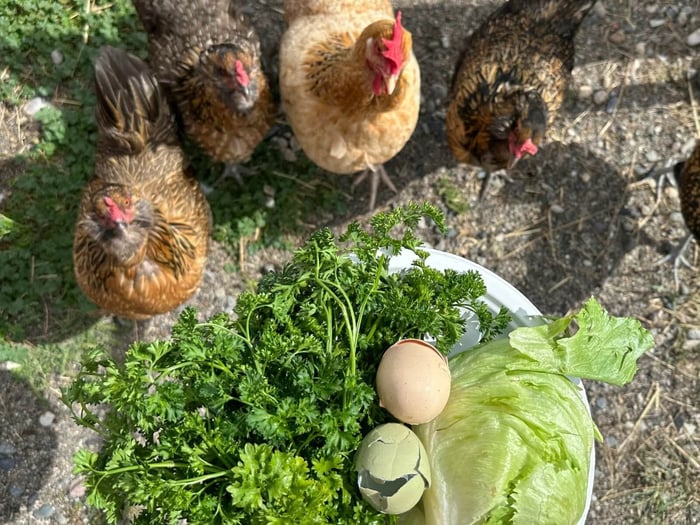
Why Food Scraps Are Good for Chickens
Chickens thrive on variety. A balanced diet of quality layer feed should always be their primary nutrition source, but scraps add enrichment and natural foraging opportunities.
Giving them safe leftovers not only reduces waste but also keeps your hens happy and entertained. In fact, even a smaller flock of 4 chickens can consume over 330 pounds of food waste every year, which is about the same amount the average American waste per year!
So, if you’ve wondered what can chickens eat from your kitchen, the answer is plenty, but with limits. Chickens should never rely solely on scraps, but they can benefit from the right additions in moderation. Let's get into it, shall we?
Fruits and Vegetables Chickens Can Eat
Most fruits and vegetables are safe, nutritious, and loved by flocks. Here’s a general list of common produce that works well as chicken snacks:
Fruits: Apples (remove seeds), pears, bananas, melon, watermelon, cantaloupe, grapes, berries, peaches, plums (remove pits).
Vegetables: Carrots, lettuce, kale, spinach, cabbage, zucchini, cucumbers, peas, pumpkin, squash, broccoli, cauliflower, sweet corn, beets.
Herbs: Parsley, oregano, basil, thyme, mint, dill.
These foods are full of vitamins, minerals, and hydration. Still, keep sugary fruits like grapes and bananas as occasional treats rather than daily staples. When asking yourself what can chickens eat for vitamins and hydration, fresh vegetables and fruits should be at the top of the list.
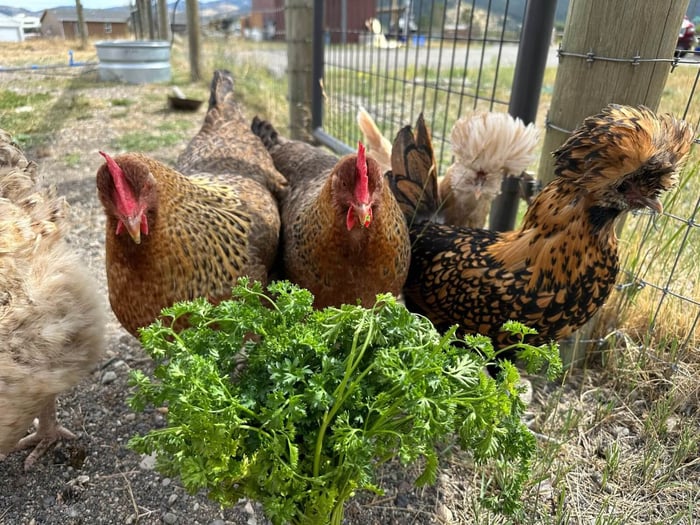
The Meat Question: What Can Chickens Eat?
Chickens are omnivores, meaning they eat both plants and animal protein. Protein is essential, especially during molting or growth phases. Here’s a breakdown of meat safety:
Cooked meat (safe): Lean chicken, beef, turkey, fish, or pork scraps that are thoroughly cooked and free of heavy seasoning. Small pieces only, as chickens don’t chew but tear and swallow.
Raw meat (not safe): Avoid feeding raw meat. It can carry bacteria like salmonella or parasites that can harm your flock.
Old or spoiled meat (never safe): Just as you wouldn’t eat spoiled leftovers, chickens shouldn’t either. Rotting meat can cause illness.
When wondering what can chickens eat in the meat category, remember this rule: cooked and fresh is fine, raw or spoiled is not. If you want more detailed information on feeding chickens meat, check out this blog!
Grains, Bread, and Processed Foods
What can chickens eat when it comes to pantry items? Grains and small amounts of bread can be fine in moderation:
Whole grains: Oats, barley, quinoa, brown rice (cooked).
Bread and crackers: Safe in very small amounts. Crackers and bread add no real nutrition and are high in simple carbs, so offer sparingly.
Cooked pasta or rice: A good occasional filler treat, especially when plain.
Processed foods like chips, cookies, or sweets should be avoided altogether. Chickens don’t benefit from excess salt, sugar, or artificial ingredients.
Eggshells: A Natural Calcium Boost
One of the most overlooked yet valuable scraps for your flock is the eggshell. Crushed, baked eggshells can be recycled back to your hens as an excellent source of calcium. Calcium is vital for strong eggshell production and overall hen health.
How to prepare: Rinse and bake eggshells at 200°F for about 10 minutes to kill bacteria, then crush them into small pieces.
Why it matters: Without enough calcium, hens may lay thin-shelled or misshapen eggs. Eggshells provide a natural, inexpensive way to supplement their diet.
Important note: Always crush shells well so they don’t resemble whole eggs, which can encourage egg-eating habits.
If you’ve been wondering what can chickens eat for better egg health, eggshells are one of the easiest and most effective options.
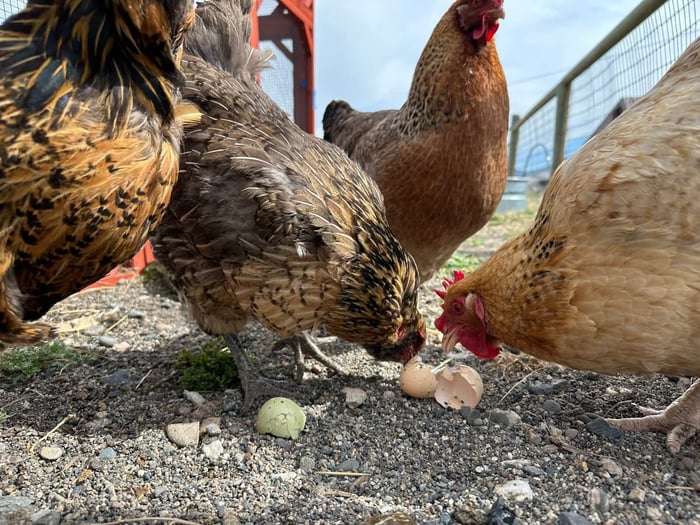
Foods Chickens Should Avoid
Not all scraps are created equal. Some foods are toxic or dangerous for chickens. Here’s what to keep out of their reach:
Avocado (especially the pit and skin) – contains persin, which is toxic.
Chocolate or caffeine – dangerous and potentially fatal.
Onions and garlic (in excess) – can cause digestive problems and affect egg taste.
Uncooked beans – contain lectins, which are toxic to birds.
Green potato peels or raw potatoes – solanine is toxic and harmful.
Many keepers ask what can chickens eat safely from root vegetables, and the answer depends on preparation. Cooked potatoes are fine, but raw green peels are not.
Chickens Are Smarter Than You Think
Interestingly, chickens often know better than we do when it comes to avoiding harmful food. For example, many will instinctively turn their beaks up at green potato peels or moldy scraps. While not foolproof, this natural instinct helps protect them. Chickens can sometimes sense what can chickens eat without issue and what they should leave behind.
That said, don’t rely entirely on their instincts—accidents happen, and some hens are more curious (and less cautious) than others. Always supervise new foods.
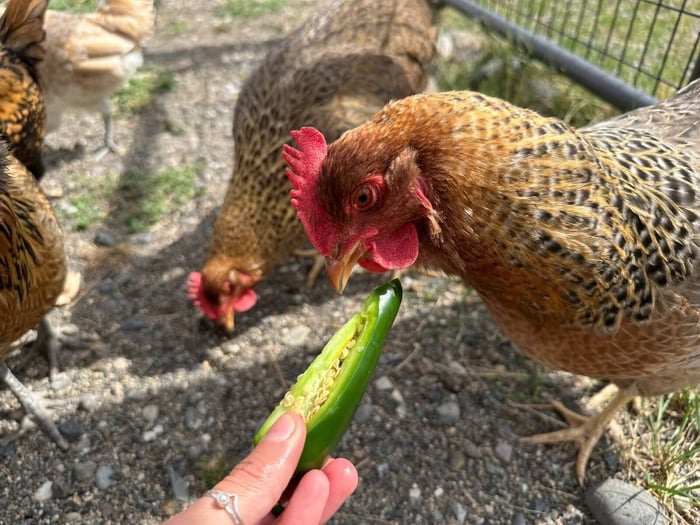
How Much Is Too Much?
Scraps should never make up more than 10–15% of your chickens’ diet. Their main nutrition should always come from a complete feed designed for their life stage—layer feed for laying hens, grower feed for pullets, or starter feed for chicks.
If you’re still wondering what can chickens eat daily versus occasionally, think of it this way:
Everyday: Greens, fresh veggies, and herbs.
Occasional: Fruits, cooked meat, bread, and crackers.
Rarely or never: Sugary, salty, processed, or toxic foods.
Final Thoughts
Sharing food scraps with your flock is one of the most enjoyable parts of chicken keeping. From watermelon rinds on a hot day to leftover cooked rice after dinner, your hens will happily accept a variety of offerings. The real trick is knowing what can chickens eat safely and what belongs in the compost instead.
The crazy things is, your flock will even develop their own unique opinions on what scraps they will and won't eat! Some of our staff members have chickens that love carrots and peas, while others won't go near them.
As long as you stick to fresh fruits, vegetables, cooked meats, and occasional grains—and avoid toxic or processed items—you’ll have healthy hens, less kitchen waste, and plenty of entertainment every time you toss scraps into the run.
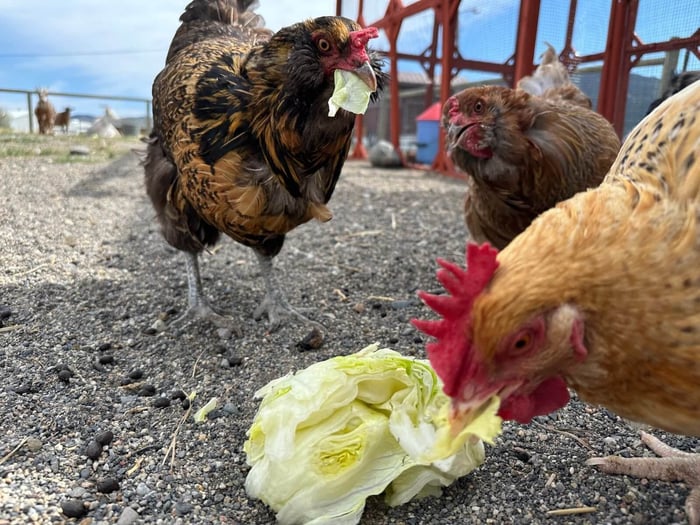
FAQs
Can chickens eat raw vegetables?
Yes, most raw vegetables are safe and healthy for chickens. Just avoid toxic ones like raw green potatoes.
Can chickens eat meat every day?
They can have cooked meat as a protein boost, but it should be occasional, not a daily staple.
Can chickens eat bread or crackers?
Yes, but only in small amounts. They provide little nutrition and should not replace balanced feed.
Why won’t my chickens eat certain scraps?
Chickens often avoid foods that don’t smell or taste right to them, such as green potato peels. This is a natural protective instinct.
What can chickens eat to stay healthy during molting?
High-protein foods like cooked eggs, mealworms, or fish scraps help support feather regrowth.


